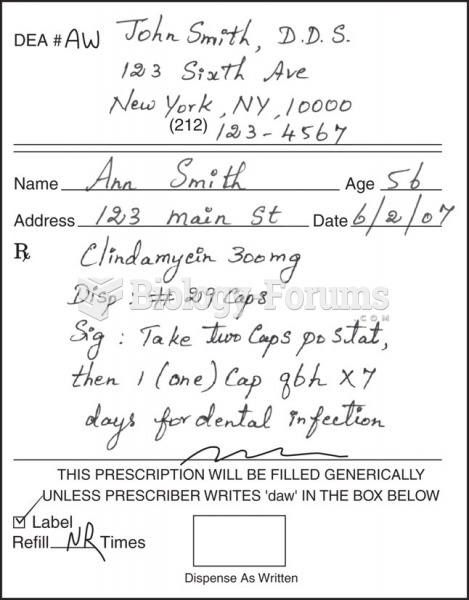|
|
|
In inpatient settings, adverse drug events account for an estimated one in three of all hospital adverse events. They affect approximately 2 million hospital stays every year, and prolong hospital stays by between one and five days.
Acute bronchitis is an inflammation of the breathing tubes (bronchi), which causes increased mucus production and other changes. It is usually caused by bacteria or viruses, can be serious in people who have pulmonary or cardiac diseases, and can lead to pneumonia.
The people with the highest levels of LDL are Mexican American males and non-Hispanic black females.
Increased intake of vitamin D has been shown to reduce fractures up to 25% in older people.
The B-complex vitamins and vitamin C are not stored in the body and must be replaced each day.







